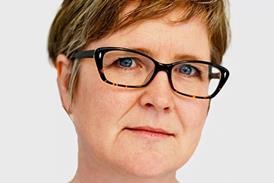In recent weeks and months we have heard and read about the radical change required in the NHS; about the need for strong, capable leaders and the significant challenges ahead improving quality and productivity amongst many other things. I agree with all this and believe there is great opportunity to address the things we perhaps haven’t in the past, but in the last few weeks, for various reasons, I’ve been thinking more about the smaller things.
Whilst we are undoubtedly entering into a very challenging period, with trusts, PCT’s and SHAs all responding in different ways because their situations are all different, we must not forget that whilst radical and significant change might be what is needed at one level, for the majority of people the day job is what is important. Not meaning in anyway at all to infer that the day job is small, far from it, but let’s not lose sight of the fact that for thousands of employees, whilst it might be important to understand the wider context of what is happening in the NHS, they want to get on with their jobs, caring for patients and doing the best they can. We must not get so caught up in what’s going to happen that we take our eye off the ball. The ball for most of us is the here and now; the patients we treat and the staff delivering services for patients.
Sometimes it is the small stuff that has a huge impact on delivering these bigger goals. If we can’t take care of the smaller things, how can we be counted on to deliver on a larger scale? We are encouraged to think big and not to sweat the small stuff, but perhaps some of us should focus more on the small stuff. Some might need to change their perspective from the grandiose and the difficult to the small and doable. I am not meaning we should become absorbed in useless trivia which can overwhelm us and prevent us from achieving important goals, all of us get caught up in things that really are not important and blow them out of all proportion sometimes, it’s not that sort of small stuff I mean. Yes, some need to do grandiose and difficult but for the majority it is the small and doable that produces tangible results, tangible results for patients.
Some (not all) consider themselves too important to do the small stuff, some feel too pressured to do ‘niceties’, to notice the nuances of human behaviour, or to bother with the small personal efforts that ultimately might have more impact than grand acts or intentions. Sometimes the small stuff gets overlooked or brushed aside, particularly in times of pressure which is the very time it shouldn’t be. For example taking the time to communicate politely, to give a compliment, picking up someone’s body language or tone of voice are not inconsequential actions, they often make or break relationships at work. It’s these things that will have longer term benefit and impact.
Take something so small as the difference a please, thank you or a smile will make, busy isn’t an excuse for forgetting, it’s something so small yet it will quite often change the response you will get, the difference in someone bending over backwards to help to not being willing to help at all.
Anyone who is successful can look back at least at one small thing that someone did for them or said to them, or that they did for someone or said to someone, that made a difference. Do sweat some of the small stuff; it’s the small stuff that makes the difference.
























1 Readers' comment